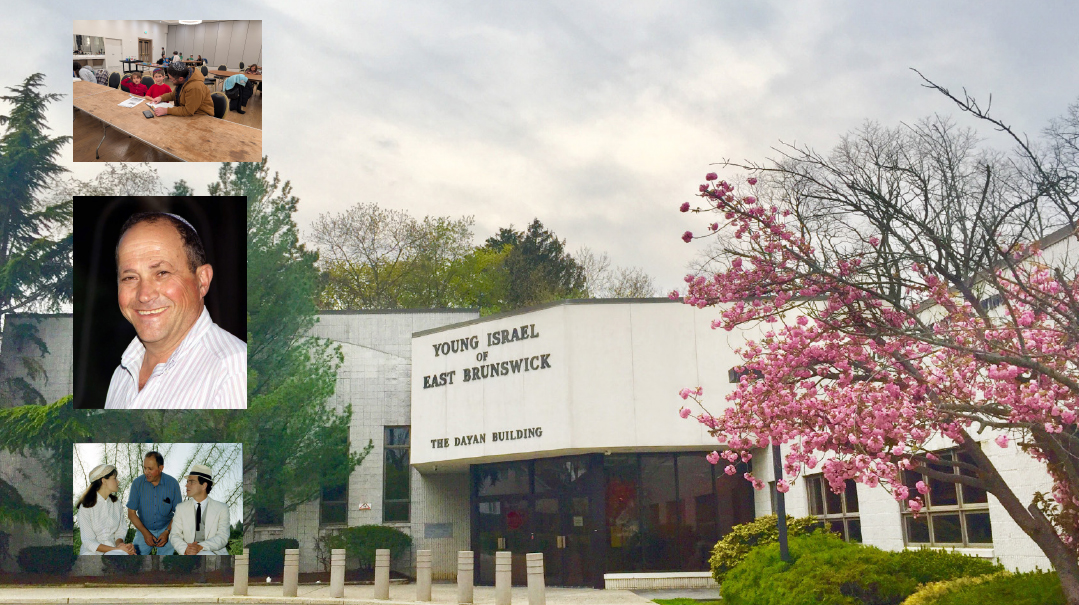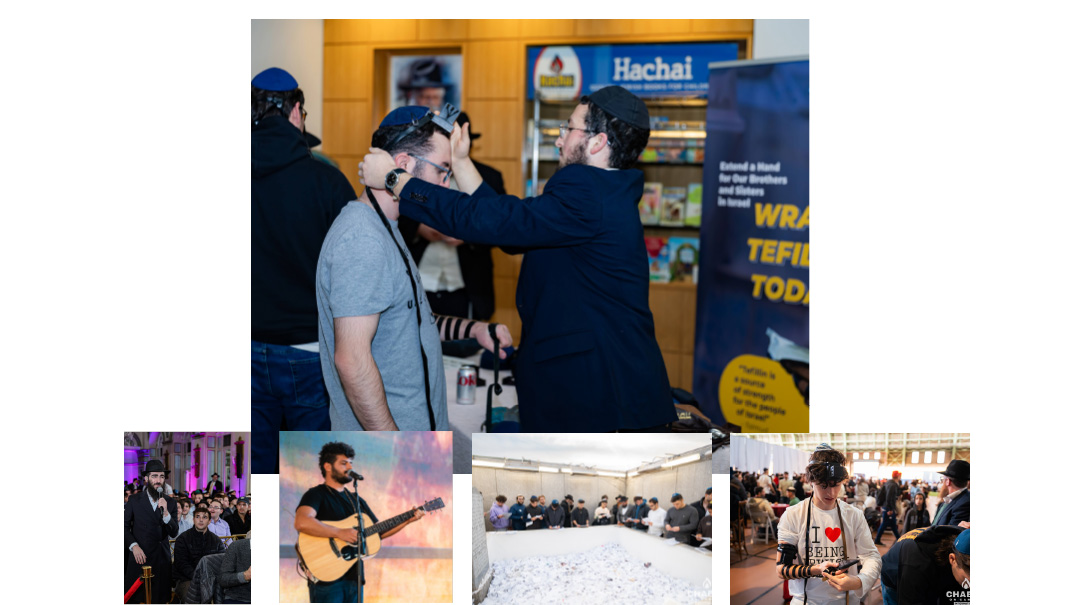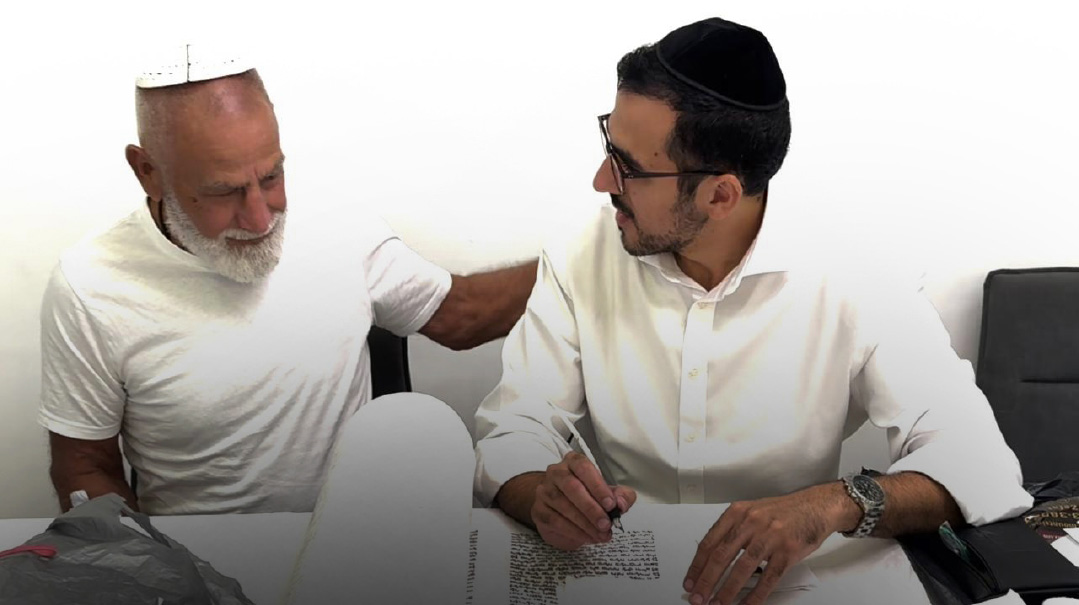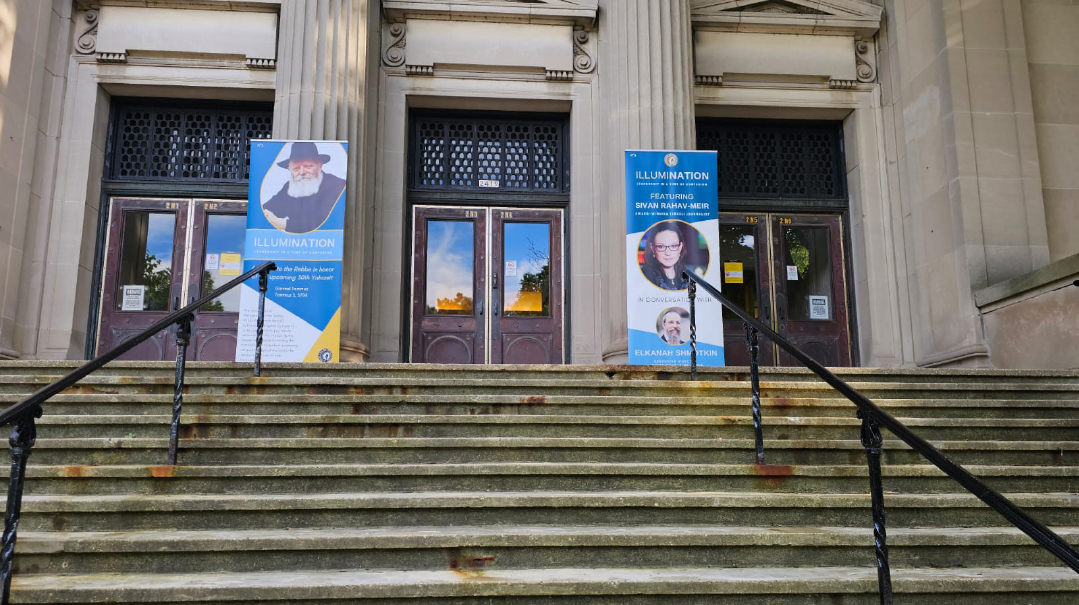Far Away from Home
| April 1, 2025Sivan Rahav-Meir finds common ground wherever she lands
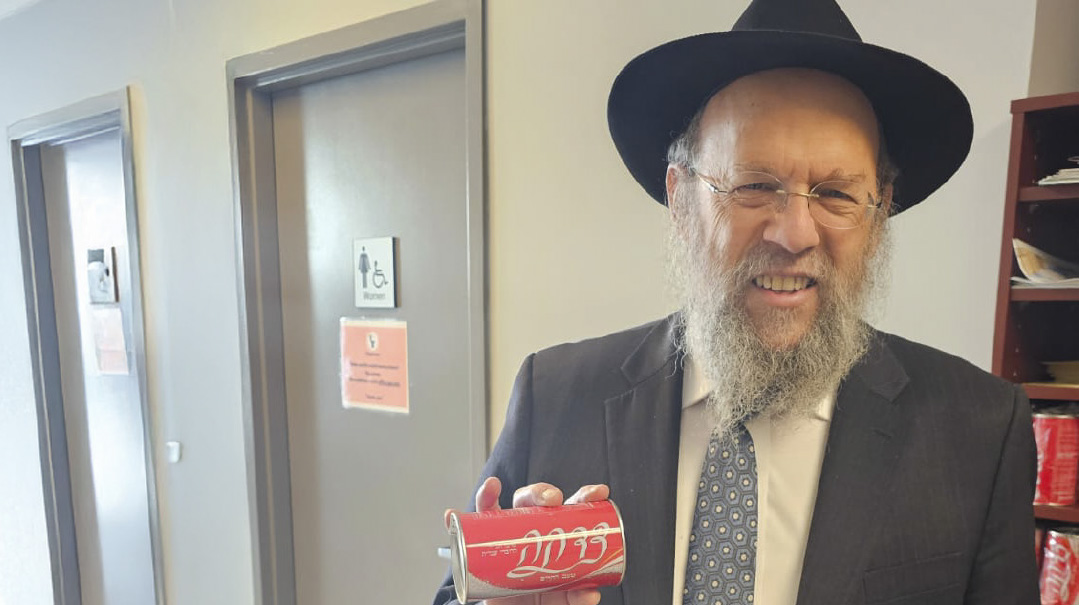
Rabbi Yisrael Landau’s niche center for Israeli expats, who often feel disconnected from the wider community
Where: Toronto, Canada
What: An event to strengthen Israeli-Jewish identity
My Takeaway: Israeli expats are really their own separate community, with their specific needs and way of relating to Yiddishkeit
AS
soon as I entered the innovatively designed building in Thornhill, Ontario, just outside Toronto, I felt enveloped by a comforting sense of familiarity. The reason for the instant connection became clear during a conversation with Rabbi Yisrael Landau, a Chabad emissary in Toronto and spiritual head of the Chabad Israeli community, who in 2012 built a niche center for Israeli expats.
“Our facility isn’t constructed with typical Canadian brick but with Jerusalem Stone, to help create an Israeli ambiance,” explained Rabbi Landau, son of Bnei Brak’s venerated chief rabbi, Rav Moshe Yehuda Leib Landau a”h, and one of over two dozen shluchim under the Chabad of Toronto umbrella. That must have been it. As I glanced around, the distinctive beige chiseled stone accents on the aron kodesh and throughout the building unmistakably evoked Eretz Yisrael.
Chabad houses globally serve diverse communities, but this one stands out by tailoring its outreach specifically to the Israeli expat Hebrew-speaking community, who, according to Rabbi Landau, often feel disconnected from the wider Jewish population. Rabbi Shimon Binstock, director of the Chabad Diaspora Networks at Merkos 302, the central office for Jewish education, outreach, and social support for the more than 4,000 centers in Chabad’s global network, related that the typical North American Chabad house is either designed for college campus or communal outreach, models that don’t fully resonate with Israelis who have different needs.
Many Israelis, for example, initially don’t see the need for synagogue involvement or Jewish education in the Diaspora, especially coming from a country where they’ve always assumed “Jewish” and “Israeli” are interchangeable. Additionally, as basic religious services in Israel are administered by the state, they can’t understand why they have to shell out large sums for tuition and shul membership fees. Of course, it soon becomes evident that buying their children Bissli and Bamba is not enough to maintain an Israeli identity in Canada.
At the center, where I’d been invited to speak, I had the privilege of interacting with Israelis spanning the range of Jewish observance and political leanings. Some had left Israel in pain-filled rage; others were in North America temporarily for professional or educational purposes. Yet what most captivated me was how so many Israelis found themselves drawn to religious observance specifically here, in this northern diaspora.
“In Israel, I took my Jewish identity for granted,” one woman confessed. “But there is no automatic Shabbat atmosphere in Toronto. If I don’t make Kiddush on Friday night, my kids won’t know what Kiddush is.” Yet even a strong Jewish atmosphere at home is not sufficient without reinforcement.
The Chai Hebrew School and Machon Chai after-school program in Thornhill exude a distinctive Israeli vibe, with Hebrew words and students’ Jewish birthdays brightly adorning the walls. There’s a bar mitzvah club, and plenty of activity rooms to make Jewish learning fun and inviting. Children and teens come on Sundays and weekday afternoons. When I arrived, I saw a kickboxing class for self-defense in one room, and in another, a class in basic Hebrew. Children with non-Canadian names like Boaz, Noa, Yishai, and Sigal are able to learn in an environment that celebrates their Israeli-Jewish heritage.
Rabbi Binstock pointed out the boys’ yarmulkes in orange, blue, and black, given according to their level of Hebrew, with black the highest. One wall had notes with various kabbalot that the students had taken upon themselves following the Oct. 7 massacre. One note read, “I will fast on Yom Kippur.”
Rabbi Binstock is currently spearheading the development of a network of Israeli Chabad houses to strengthen Jewish-Israeli identity, and organizes lecture tours featuring well-known speakers from Israel.
“Unfortunately, Israelis who move to the diaspora do not connect to their Jewish identity and the rate of assimilation is very high,” he noted. “Many parents discover this only after it’s too late. It’s vital to create a warm, inviting environment where expat Israeli children can grow in their Jewish identity and not lose the little that their parents brought with them from Israel.”
In the heart of this active community, personal stories abound. A young Israeli fellow of Russian descent, wearing a cap and tzitzis, hurried past us. Rabbi Landau, who had accompanied him on his Jewish journey, including officiating at his wedding, asked him to briefly share his story.
“I’m the son of Monday,” he said. “When Rabbi Landau first came to Toronto, he asked a group of Russian-speaking Israeli Jews to complete a minyan for him, each one on a different day. Well, my father was Monday. One thing led to another and… here I am.”
Rabbi Benny Kamchaji, youth director at Machon Chai and himself a chozer b’teshuvah, shared an inspiring account of his outreach efforts. “There is a large public school near here with a sizeable Jewish student body made up of kids from Israeli families. I decided to open a pizza club where they could enjoy kosher pizza and engage in some Jewish learning during lunch break.”
On opening day, Rabbi Kamchaji was ready, expecting to feed and interact with about 50 students. In the end, only three showed up — and of those, one confessed that she wasn’t even sure if she was Jewish.
“Then, she said, ‘Wait, if my mom is Jewish, does that make me Jewish?’ After confirming her Jewish heritage, she became a regular participant.
“Last Chanukah, we organized a raffle, encouraging teens to send pictures of themselves with their lit menorahs. The same girl who had previously been unaware of her Jewish identity now brought a menorah home and taught her parents how to say the brachot and light Chanukah candles. That was an important lesson — you can plan for dozens, but even if only one shows up, that person is an entire world.”
I don’t want to preach, but I would like to extend a call to all readers: Anyone can be an emissary. The next time to you meet an Israeli, invite them for a Shabbos meal or to accompany you to shul. True, they might speak Hebrew fluently, but don’t let that confuse you — their observance of Torah and mitzvos might need nurturing. And every interaction is an opportunity to strengthen their bonds of Jewish identity. —
Sivan Rahav-Meir, Israeli television news presenter, was voted by the Jerusalem Post as one of the 50 most influential Jews in the world. Sivan began her media career at age six, interviewing for a kids’ news magazine and youth television. She became religious as a teenager, and has since been working for national media and teaching Torah through various platforms, including the weekly podcast "Sivan Says." Her inspirational “Daily Thought” is translated to 17 languages.
(Originally featured in Mishpacha, Issue 1056)
Oops! We could not locate your form.

